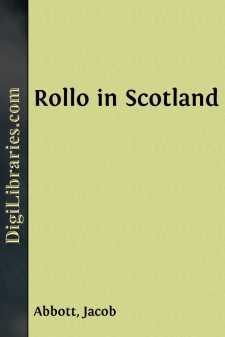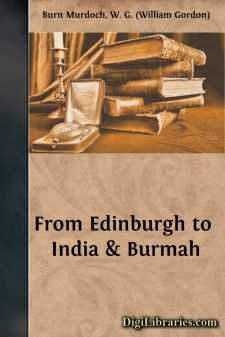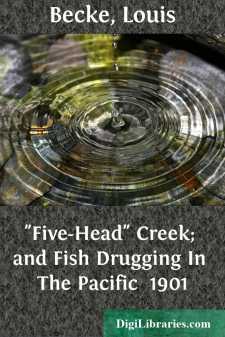Categories
- Antiques & Collectibles 13
- Architecture 36
- Art 48
- Bibles 22
- Biography & Autobiography 813
- Body, Mind & Spirit 142
- Business & Economics 28
- Children's Books 17
- Children's Fiction 14
- Computers 4
- Cooking 94
- Crafts & Hobbies 4
- Drama 346
- Education 46
- Family & Relationships 57
- Fiction 11829
- Games 19
- Gardening 17
- Health & Fitness 34
- History 1377
- House & Home 1
- Humor 147
- Juvenile Fiction 1873
- Juvenile Nonfiction 202
- Language Arts & Disciplines 88
- Law 16
- Literary Collections 686
- Literary Criticism 179
- Mathematics 13
- Medical 41
- Music 40
- Nature 179
- Non-Classifiable 1768
- Performing Arts 7
- Periodicals 1453
- Philosophy 64
- Photography 2
- Poetry 896
- Political Science 203
- Psychology 42
- Reference 154
- Religion 513
- Science 126
- Self-Help 84
- Social Science 81
- Sports & Recreation 34
- Study Aids 3
- Technology & Engineering 59
- Transportation 23
- Travel 463
- True Crime 29
Sort by:
CHAPTER I. Joined the Rifles. Walcheren Expedition. A young Soldier. A Marine View. Campaign in South Beeveland. Retreat to Scotland. I joined the second battalion rifle brigade, (then the ninety-fifth,) at Hythe-Barracks, in the spring of 1809, and, in a month after, we proceeded to form a part of the expedition to Holland, under the Earl of Chatham. With the usual Quixotic feelings of a youngster, I...
more...
PREFACE. Memoirs such as these of Henry of Monmouth might doubtless be made more attractive and entertaining were their Author to supply the deficiencies of authentic records by the inventions of his fancy, and adorn the result of careful inquiry into matters of fact by the descriptive imagery and colourings of fiction. To a writer, also, who could at once handle the pen of the biographer and of the...
more...
by:
Jacob Abbott
The Boy that was not loaded. In the course of his travels in Europe, Rollo went with his uncle George one summer to spend a fortnight in Scotland. There are several ways of going into Scotland from England. One way is to take a steamer from Liverpool, and go up the Clyde to Glasgow. This was the route that Mr. George and Rollo took. On the way from Liverpool to Glasgow, Rollo became acquainted with a...
more...
ATTRIBUTED TO CHEVALIER JOHNSTONE. Hope that heavenly, healing balm, that gift from Providence, blended with persecutions to blunt the sharpness of their sting and hinder the unfortunate from being overwhelmed, and sinking under the load of their afflictions, never dies out—never abandons the distressed. "We don't believe in dangers," says Machiavel, "until they are over our heads;...
more...
by:
Harrison Fisher
THE MARQUIS’ HONEYMOON Old Drury Lane rang with applause for the performance of Madame Carew. Of British-French parentage, she was a recognized peer among the favorite actresses on the English stage and a woman whose attractions of face and manner were of a high order. She came naturally by her talents, being a descendant of Madame de Panilnac, famed as an actress, confidante of Louise-Benedicte,...
more...
I. LIFE IN A PHILIPPINE VILLAGE. The little village or barrio of Mariveles is situated just inside the narrow cape that forms the northern border of the entrance to Manila Bay. The city of Manila lies out of sight, thirty miles to the southeast, but the island of Corregidor lies only seven miles to the south, and the great searchlights at night are quite dazzling when turned directly upon the village....
more...
TO HALIBURTON, BLANCHE, AND SYDNEY. My dear Children, I dedicate this little volume to you in memory of your father, who, as you know, fell on March 12th, 1915, in the Battle of Neuve Chapelle. These Letters, which were written to me from France during the first winter of the World War, do not in any way pretend to literary attainment; they are just the simple letters of a soldier recording as a diary...
more...
by:
Frederic Houssay
The naturalists of yesterday and the naturalists of to-day. — The study of animals, plants, rocks, and of natural objects generally, was formerly called “natural history”; but this term is tending to disappear from our vocabulary and to give place to the term “natural sciences.” What is the reason of this change, and to what does it correspond? for it is rare for a word to be modified in...
more...
CHAPTER I Some time ago I wrote a book about a voyage in a whaler to the far south, to a white, silent land where the sun shines all day and night and it is quiet as the grave and beautiful as heaven—when it is not blowing and black as—the other place! A number of people said they liked it, and asked me to write again; therefore these notes and sketches on a Journey to India and Burmah. They may...
more...
by:
Louis Becke
I had ridden all day through an endless vista ot ghostly grey gums and ironbarks, when I came in sight of the long wavering line of vivid green foliage which showed me that I had reached my destination—a roughly-built slab hut with a roof of corrugated iron. This place was to be my home for six months, and stood on the bank of Five-Head Creek, twenty-five miles from the rising city of Townsville in...
more...











